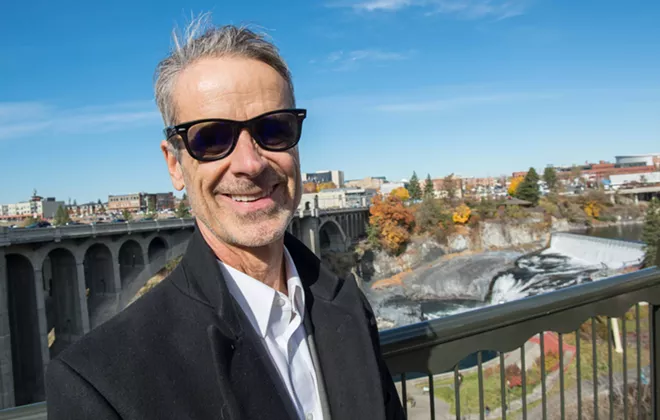Last fall, when the economy was still booming and the first case of COVID-19 had yet to be diagnosed, Gavin Cooley — the city of Spokane's outgoing chief financial officer — floated a counterintuitive idea.
“What if, when we hit a recession, and everyone starts getting laid off, the city of Spokane doubles down on road construction?” Cooley said back then during an Inlander interview.
After all, recessions fall prey to what economists call the paradox of thrift: When the economy’s lousy, nobody spends money because it feels risky, and that makes the economy worse. That's the whole premise behind an economic stimulus: When the gears of the economy grind to the halt, the federal government pours on the oil.
It turned out he'd get the opportunity sooner than he predicted: Today, Cooley is leading the Mayor’s Economic Recovery and Stimulus Task Force, the entity charged with helping local businesses survive the coronavirus shutdown and then, eventually, rebuild the economy.
But he’s writing the same prescription: Invest in permanent improvements now, taking advantage of lower construction costs and boosting the local economy simultaneously.
“This is a time when we then can be forward-thinking instead of hunkering down,” Cooley says. Don't slow down on street projects — accelerate them, giving a boost to the ailing construction industry.
"We could do the same thing within the parking system," Cooley says. "There's a lot of places where we could quickly put to work to help the parking system downtown, enhance retail, enhance some of the hard-hit industries."
But that might mean resisting our conservative instincts, he says.
"If we sit out where we are right now and say, 'You know, what can we put to work?' our natural tendency is to worry about the decrease in revenue," Cooley says.
Indeed, the city's budget is about to get absolutely hammered. Around a third of the city's revenue comes from sales tax — but most groceries are exempt from the tax. And unlike, the federal government, cities and states can't simply decide to print money during a budget crunch.
But Cooley notes that the city has a big pool of reserves set aside. It has a great credit rating. It can afford to make permanent investments, he argues. Not only that, but the city can borrow against the future money coming in through its street levy, effectively turning a construction project that had been scheduled for 2030 into a project for 2021.
After all, your dollar can often go a lot further when the economy lousy's rather than when it's thriving.
"The costs of street projects, asphalt costs are plummetting," Cooley says. "Cement costs are plummetting."
For now, however, all non-essential construction projects are on hold due to Gov. Jay Inslee's stay-at-home order. Earlier this week, the city was seeking clarity on which projects were considered "critical infrastructure construction."
Still, Cooley sees a slim sliver of silver lining amid this disaster:
"It's a little bit of a triage in the short term. But in the longer term, there's some opportunity to really get in there and do some things right," Cooley says. "If anybody has any comments, let me know at gcooley@spokanecity.org. We want to gather input. This small group isn't going to solve the world's problems, but they can certainly be a convener for the broader conversation in the community."

